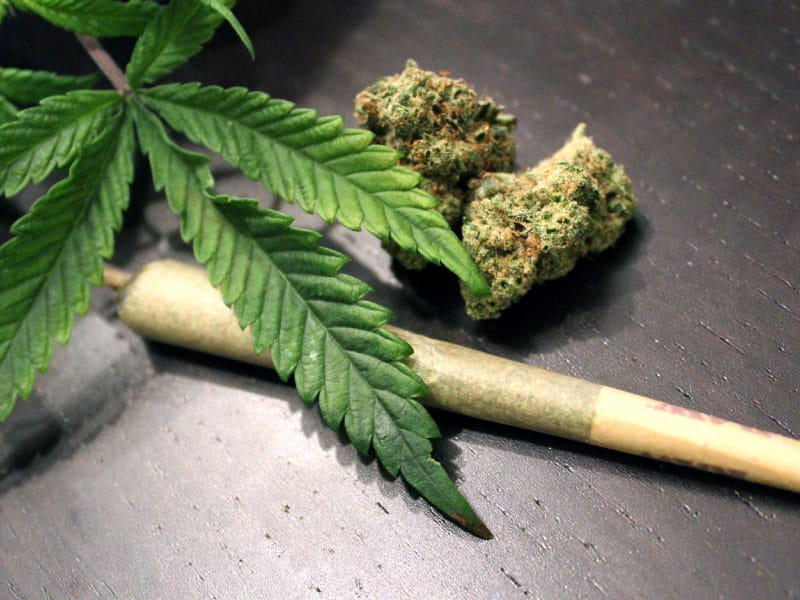Marijuana use linked to higher risk of heart attack and stroke
By American Heart Association News

Using cannabis – either by smoking, eating or vaping it – may raise the risk for heart attacks and strokes, new research suggests.
Survey respondents who said they use cannabis, or marijuana, had a higher risk for cardiovascular problems regardless of whether they used tobacco products or had other underlying cardiovascular risk factors, the study found. The research was published Wednesday in the Journal of the American Heart Association.
"Despite common use, little is known about the risks of cannabis use and, in particular, the cardiovascular disease risks," lead study author Dr. Abra Jeffers said in a news release. Jeffers is a data analyst at Massachusetts General Hospital in Boston. "The perceptions of the harmfulness of smoking cannabis are decreasing, and people have not considered cannabis use dangerous to their health."
In addition, she said, "smoking cannabis – the predominant method of use – may pose additional risks because particulate matter is inhaled."
The number of people using marijuana has increased significantly in recent decades in the U.S., where its recreational use has been legalized in 24 states and the District of Columbia. In 2019, a federal survey showed more than 48 million people ages 12 and older reported using marijuana at least once – nearly double the number in 2002. On the federal level, marijuana use remains illegal.
Prior research on the link between marijuana use and heart attacks or strokes has been limited for several reasons. The number of people who smoke marijuana frequently is relatively low, most studies have been done in younger populations that are at low risk for cardiovascular disease, and many people who use marijuana also use tobacco products, making it difficult to look at the effects of marijuana independently.
In the new study, researchers analyzed survey data from the Centers for Disease Control and Prevention for 434,104 U.S. adults from 2016 to 2020. They investigated whether the number of days of cannabis use in the past 30 days was associated with self-reported cardiovascular outcomes, including coronary heart disease, heart attacks and strokes, among the general adult population and people who had never smoked tobacco or used e-cigarettes. Researchers also investigated these associations among men under 55 and women under 65 who were at risk for heart disease.
Any marijuana use was linked to a higher risk for heart attacks and strokes, but people who used it most frequently had the highest odds. Adults who used marijuana daily had 25% higher odds of having a heart attack and 42% higher odds of stroke than people who didn't use it at all. Smoking was the most common method of cannabis use, followed by eating or vaping it.
Among men under 55 and women under 65, using marijuana resulted in a 36% higher combined odds for coronary heart disease, heart attack or stroke, regardless of whether they also used tobacco products. The odds were higher even when researchers looked only at those who had never used tobacco products or e-cigarettes.
"Cannabis smoke is not all that different from tobacco smoke, except for the psychoactive drug: THC versus nicotine," Jeffers said. "Our study shows that smoking cannabis has significant cardiovascular risks, just like smoking tobacco. This is particularly important because cannabis use is increasing, and conventional tobacco use is decreasing."
Dr. Robert L. Page II, who chaired the writing group for a 2020 American Heart Association scientific statement on marijuana's effects on cardiovascular health, said in the release that the new findings should be a "call to action for all practitioners" about "a potentially hazardous combination." Page is a professor of clinical pharmacy, medicine and physical medicine at the Skaggs School of Pharmacy and Pharmaceutical Sciences at the University of Colorado School of Medicine in Aurora. He was not involved in the new study.
"As cannabis use continues to grow in legality and access across the U.S., practitioners and clinicians need to remember to assess cannabis use at each patient encounter in order to have a nonjudgmental, shared decision conversation about potential cardiovascular risks and ways to reduce those risks," Page said.





